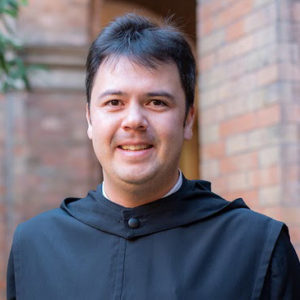1 – 12 July 2024, weekdays
IL: L702;
KU Leuven: B-KUL-A07E2A
4 study points
Taught by: Stephan Geiger

Stefan Geiger
Aims:
The course aims to provide insight into the origin and developments of the liturgy in the West up to the present day. Students reflect on the different cultural periods of society and how these shape the liturgy of the Catholic Church and how the liturgy in turn influences the culture. Students examine both the historical and liturgical record and the recent debates among Catholic liturgists concerning the past and future development of the Roman Catholic liturgy. The course will proceed by means of a chronological study of the major periods of the liturgy of the Catholic Church in the West and beyond.
Hours: To be determined. Typically: 14.00 – 17.00 (including a 24 minute break)
The course anticipates the student will spend 60 hours in personal reading and study.
Location: Liturgy Institute London (at Ealing Abbey)
74 Castlebar Road Ealing London, W5 2DD, UK
Telephone: +44 (0)20 8194 2320
For further details or to register contact the Institute:
E-mail Clare Cogswell, the Registrar, at this linked E-mail address.
Location on Google Maps is found here.
KU Leuven awards 4 study points upon the successful completion of this graduate course.
The Institutum Liturgicum requires this course for its IL certificate.
Previous knowledge
It is recommended that participants be familiar with the history of western civilization in the Christian period and, in particular, with the various liturgical celebrations of the Catholic Church.
Content
After a general introduction, the students will examine and discuss the history of the Liturgy in the West, treated in twelve principal periods.
i. A consideration of the method used and an outline of the different periods.
ii. The characteristics of the different periods of the Roman Catholic Liturgy from New Testament forms to Second Vatican Council.
iii. Conclusions and principles of liturgical renewal.
Course Material
♦ The Library resources are available to the participants including research tools
♦ Participants with a personal computer, with a LAN cable and a UK plug-in adapter will benefit more readily from online resources.
♦ M. METZGER, History of the Liturgy: The Major Stages, tr. M. Beaumont, Liturgical Press, Collegeville MN 1997.
♦ Introduction to the Liturgy (Handbook for Liturgical Studies 1), ed. A.J. Chupungco, Liturgical Press, Collegeville MN, 1997, 95-113, 131-152, 153-178.
♦ T. KLAUSER, A Short History of the Western Liturgy, tr. J. Halliburton OUP, Oxford 1969.
♦ G. DIX, The Shape of the Liturgy, Dacre, London 1945.
Course activities
♦ study of the recommended literature and liturgical and cultural records;
♦ active participation in class activities;
♦ development of a knowledge of the theological issues involved in the contemporary discussions regarding the renewal and development of the liturgy of the Catholic Church and other Western churches
♦ development of a knowledge of the major issues concerning liturgical renewal since Vatican II.
Evaluation description
Examination type: oral (100%); with written preparation.
When: the oral exam is conducted at the end of the final session; written preparation comprises notes handed in at the beginning of the oral exam and kept on file for one year.
Explanation: Students choose one period of liturgical history for more detailed study and prepare the rest of western liturgical history for a more synthetic and reflective response especially in terms of continuity and change. The full mark is based on the student’s oral presentation of their study and their understanding presented to the instructor and their discussion. Students may bring their prepared written notes to this final discussion. The function of written preparation is to help the student prepare a satisfactory answer and to support the student in his or her oral presentation and discussion. Copies of the liturgical texts discussed during the course will be provided for students during the exam.
Criteria for evaluation: There are two questions in the oral exam. The first question asks for a descriptive-analytical response concerning the characteristics of one of the historical periods examined, selected by the student. The second question asks for a synthetic-applied response covering the major issues concerning the Catholic liturgy in history and culture.
Second opportunity to sit the exam: Because this is an intensive summer course, the opportunity for a second exam is by appointment and depends upon the availability of the instructor.
Note: Students must be over 18 years of age.
This course has been designed to be taken alone or in conjunction with L701 Liturgical Research Seminar as the foundation courses for the programme of studies in liturgy. Otherwise this course may be taken with L705 Theology of the Liturgy.
If students enrol in two concurrent courses, they may wish to prepare for the intensive schedule by reading suggested texts before the course begins.
The instructor will arrange with the students to be available regularly for some time at the Institute and is also available by appointment.
Students and the public are invited to attend the annual St Bede Lecture, to be held at Ealing Abbey on Saturday afternoon 6 July at 2.30 PM.
Accommodation:
Non residential day students are welcome.
Limited accommodation is available through Ealing Abbey house for guests or other religious houses or nearby.
Additional information from KU Leuven course web-site
Academic year: 2024 − 2025
Study points: 4
Language: English
Difficulty: Master’s level-Introductory
Duration: 26.0 hours
Periodicity: Taught annually in Block I
POC: POC Theology and Religious Studies
This course is included in
Research Master of Advanced Studies in Theology and Religion (120 ECTS)
Master of Theology and Religious Studies Study Abroad Programme in European Culture and Society (PECS).
A link to the course descriptor at KU Leuven is not yet available, but the course is based on one previously offered (link here).
Page updated on 22 July 2023 by DM.